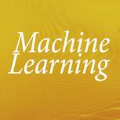The intricate relationship between human decision-making and emotions, particularly guilt and regret, has significant implications on behavior and well-being. Yet, these emotions subtle distinctions and interplay are often overlooked in computational models. This paper introduces a dataset tailored to dissect the relationship between guilt and regret and their unique textual markers, filling a notable gap in affective computing research. Our approach treats guilt and regret recognition as a binary classification task and employs three machine learning and six transformer-based deep learning techniques to benchmark the newly created dataset. The study further implements innovative reasoning methods like chain-of-thought and tree-of-thought to assess the models interpretive logic. The results indicate a clear performance edge for transformer-based models, achieving a 90.4% macro F1 score compared to the 85.3% scored by the best machine learning classifier, demonstrating their superior capability in distinguishing complex emotional states.
翻译:暂无翻译



